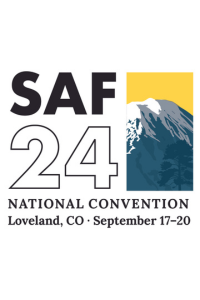Lecture Presentations
Family Forests
Landowner Perceptions and Ecological Realities of Right-of-way Management and Private Forestlands
Wednesday, September 18, 2024
10:30 AM - 11:00 AM MST
Location: Embassy Suites, Goldenglow

Gabriel R. Karns, n/a (he/him/his)
Ecolab Manager, Lecturer
The Ohio State University
Columbus, Ohio, United States
Speaker(s)
Utility easements through private lands are important for companies to ensure safety and reliability; however, easements are potentially prickly for landowners. We present landowner perceptions of pipeline rights-of-way’ services and disservices in a forested landscape and point-based ecological assessments to learn more about private forestlands interaction with utility easements.
Learning Objectives:
- Learn how public utilities and private landownership interact through easement agreements. These contracts manifest in a host of challenges and opportunities that intersect rights-of-way corridors (ROW) and private forestlands.
- Understand Integrated Vegetation Management as a forward-thinking solution that balances priorities of operational efficiency, landowner objectives, and environmental stewardship within ROW easements. Integrated Vegetation Management will also be contrasted against less progressive, status quo approaches to vegetation maintenance.
- Articulate perceived services and disservices of ROWs, as well as utility and landowner management practices of ROWs. Participants will also examine ecological data (e.g., edge effects, non-native plants invasion, tree health, soil characteristics) that describe current status of pipeline-forest interfaces. Integrated Vegetation Management will be used as a framework to couple human-dimensions and ecological data into a strategic model moving forward

